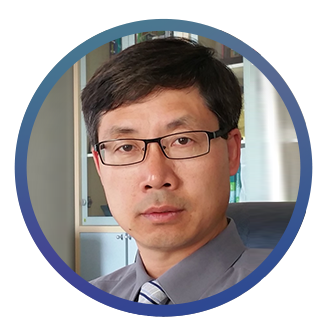Dr. Julie A. Howe
Professor, Soil and Crop Science, College of Agriculture & Life Sciences, Texas A&M University, United States of America
Dr. Julie Howe is Associate Professor of Soil Chemistry and Fertility at Texas A&M University. She received her PhD from the University of Wisconsin-Madison. Her research has focused on cycling and fate of nutrients and carbon at various levels ranging from fundamental complexation reactions to field-scale processes. She divides her research focus into three areas: impact of agricultural management on nutrients and soil carbon, development and efficacy of nutrient amendments, and processes that improve soil health. She teaches a large enrollment introductory soil science course, and a graduate level advanced soil chemistry and fertility course. She has served as the Nutrients and Environmental Quality Community Chair for American Society of Agronomy and upcoming Soil Fertility and Plant Nutrition Division Chair for Soil Science Society of America. She also serves on the Scientific Advisory Board for the Soil Health Institute.
Dr. Scott Chang
Professor, Department of Renewable Resources, University of Alberta, Canada
Dr. Scott Chang is a Professor in the Department of Renewable Resources at the University of Alberta. He received his education from the University of British Columbia (Ph.D. in forest soils), the Chinese Academy of Sciences (M.Sc. in soil ecology) and Zhejiang Agricultural University (B.Sc. in soil science and agricultural chemistry).
His main research interests are in forest soils, biogeochemistry, and the application of soil science in land reclamation, agriculture, forestry, and global change. In his Future Energy Systems project, he is developing novel materials from agricultural/forestry waste products using three approaches: production of biochars through pyrolysis in a muffle furnace or in a microwave, and production of hydrochars through hydrothermal carbonization under high temperature and pressure. The feedstock type and production conditions for biochars and hydrochars are being optimized to produce novel materials that are effective for the removal of toxic metals from wastewater. The effectiveness and mechanisms of biochars/hydrochars for wastewater treatment are being studied using adsorption/desorption experiments. The stability of metals adsorbed on to biochars/hydrochars are being studied and the techniques are being scaled up for potential industrial applications (e.g., in constructed wetlands).
Dr. Chang is currently a regional editor for Biology and Fertility of Soils, and an editorial board member for Pedosphere and Forests. He served as Chair of the Soil Fertility and Plant Nutrition Commission of the International Union of Soil Science, Chair for the Forest, Range and Wildland Soils Division of the Soil Science Society of America (SSSA), and Chair of the Alberta Soil Science Workshop. He was an editor for special issues for the Canadian Journal of Soil Science and an associate editor/guest editor for Journal of Environmental Quality, Environmental Science and Pollution Research, Forests, Forest Ecology and Management, and the Canadian Journal of Soil Science. He is a Fellow of the Soil Science Society of America (2016), American Society of Agronomy (2016), and the Canadian Society of Soil Science (2018).
Dr. Ming-Jer Tsai
Director, the Experimental Forest, the College of Bioresources and Agriculture, National Taiwan University, Taiwan
Dr. Tsai has been working as the Post-Doctoral Research Fellow in the School of Forestry and Resource Conservation, National Taiwan University from 1996-1999 and then the Assistant Professor, Associate Professor, and Professor Since 1999. He became Director of the Experimental Forest, National Taiwan University in 2014 and currently is also the Associate Dean of the College of Bioresources and Agriculture, National Taiwan University. Throughout his career, Dr. Tsai has focused on wooden construction, wood preservation, wood mechanics, investigation and restoration of damaged wood structures, and forest therapy. Meanwhile, he also has been devoting himself to promoting forest sustainability and international intercollegiate collaboration after becoming the Director of the Experimental forest and the Associate Dean of the College of Bioresources and Agriculture, National Taiwan University. Since 2005, he has won the awards of Journal of Wood Science Emachu Research Fund for international contribution, distinguished contribution on restoration of historical buildings, Chinese Forestry Association, Chinese Forest Product Industry Association for distinguished contribution on wood physics, and the Top 10 outstanding agricultural experts of 2016 in Taiwan. He also provides expertise to National Center for Research and Preservation of Cultural Properties, Council for Cultural Affairs, National Standard Bureau, Department of Economic Affairs, the International Editorial Board of Materials and Design, as well as the Deputy Coordinator of IUFRO (International Unions of Forest Research Organizations).
Dr. Ville Isoherranen
Director, School of Engineering and Natural Resources, Oulu University of Applied Sciences, Finland
Dr. Ville Isoherranen (Dr.Sc. (Tech)) is the Director of School of Engineering and Natural Resources at the Oulu University of Applied Sciences, Oulu, Finland. Dr. Isoherranen is also Adjunct Professor at the Faculty of Technology, Industrial Engineering and Management at the University of Oulu, Oulu, Finland. Dr. Isoherranen’s research interests are strategic management, operational excellence, knowledge-based management, and customer-focused enterprises.





